WorkCover stress leave is a vital safety net for employees grappling with mental health issues stemming from their work environment. Understanding its significance can empower workers to seek the support they need while ensuring their rights are protected. This article delves into the intricacies of WorkCover stress leave, outlining eligibility criteria, the application process, and the benefits it offers, highlighting why it matters for both employees and employers alike.
Key Takeaways
- Definition and Purpose: WorkCover stress leave is designed for employees suffering from mental health conditions linked to work-related stress, providing essential support during recovery.
- Eligibility Criteria: To qualify for WorkCover stress leave, employees typically need a medical diagnosis, prompt reporting of the issue, and a minimum duration of employment, which varies by jurisdiction.
- Application Process: Claimants must notify their employer, complete a claim form, submit necessary documentation, and await confirmation of their claim status to successfully apply for WorkCover stress leave.
- Financial and Mental Health Benefits: WorkCover stress leave offers financial support by compensating lost wages, alongside facilitating access to mental health services, thereby aiding in the recovery process.
- Challenges and Misunderstandings: Claimants often face misconceptions about stress leave and must navigate complex legal frameworks, making it crucial to understand specific regulations and seek necessary support.
Understanding WorkCover Stress Leave
WorkCover stress leave serves as a vital safety net for employees experiencing mental health issues linked to their work environments. This section clarifies the definition and outlines the eligibility criteria for this important leave.
Definition of WorkCover Stress Leave
WorkCover stress leave refers to a type of leave provided to employees unable to work due to mental health conditions stemming from work-related stressors. This leave allows workers to recuperate and seek treatment without financial strain. Employers may have obligations to support their employees during this recovery phase, ensuring a healthier workplace.
Eligibility Criteria
Eligibility for WorkCover stress leave varies by region and organisation. Generally, employees must meet the following criteria:
- Employment Status: Employees must be in a position that qualifies under the relevant WorkCover legislation.
- Medical Diagnosis: A mental health professional must provide a diagnosis confirming that work-related stress significantly affects the employee’s health.
- Reporting Requirements: Employees should promptly report the stress-related condition to their employer and follow internal policies regarding leave applications.
- Duration of Employment: Most jurisdictions require employees to have a specified period of employment before qualifying for benefits, often ranging from three to six months.
By understanding the definition and eligibility criteria, employees can better navigate the process of seeking WorkCover stress leave when facing mental health challenges.
The Process of Applying for WorkCover Stress Leave

Applying for WorkCover stress leave involves several clear steps to ensure a smooth process for employees experiencing work-related mental health issues.
How to Submit a Claim
To initiate a WorkCover stress leave claim, follow these steps:
- Notify Employer Immediately: Inform the employer as soon as the mental health condition affects work performance.
- Complete Claim Form: Obtain the necessary claim form from the employer or the WorkCover website. Fill it out accurately, providing required personal and employment details.
- Submit the Claim: Submit the completed claim form directly to the employer or the relevant WorkCover authority. Keep a copy for personal records.
- Await Confirmation: The employer or WorkCover will review the claim. They’ll send written confirmation of the claim’s status and any required follow-up actions.
Required Documentation
Supporting documents enhance the claim’s legitimacy. Essential documents include:
- Medical Certificate: Obtain a medical certificate from a registered mental health professional. It must confirm the diagnosis and treatment recommendations.
- Claim Form: Include the completed claim form, ensuring all sections are filled accurately.
- Employment Records: Provide proof of employment, such as payslips or contract agreements, to show eligibility.
- Additional Reports: Include any reports or correspondence related to the mental health condition, if applicable.
Each document plays a crucial role in substantiating the claim and ensuring the application is processed efficiently.
Benefits of WorkCover Stress Leave
WorkCover stress leave provides vital support for employees dealing with work-related mental health issues. This section details the primary benefits of accessing this leave.
Financial Support
Financial support is a significant benefit of WorkCover stress leave. Employees receive compensation for lost wages during their absence, reducing the financial burden associated with mental health recovery. This assistance can cover a substantial portion of their regular salary, ensuring that workers maintain their livelihoods while unable to perform their job duties. Additionally, it alleviates stress related to financial instability, allowing for a more focused recovery process.
Mental Health Support
Mental health support plays a crucial role in the benefits of WorkCover stress leave. This leave enables employees to prioritise their well-being, pursue treatment options, and take necessary time off to recuperate. Access to mental health services, such as therapy and counselling, can significantly enhance recovery outcomes. By providing a structured opportunity to address underlying issues without workplace pressures, individuals can effectively develop coping strategies and return to work healthier and more resilient.
Common Challenges Faced by Claimants
Claimants often encounter several challenges when applying for WorkCover stress leave. Understanding these challenges can help navigate the process more effectively.
Misunderstandings About Stress Leave
Many claimants hold misconceptions regarding WorkCover stress leave. Some employees mistakenly believe that stress leave is treated the same as general sick leave. However, stress leave necessitates a clear diagnosis from a qualified mental health professional to validate the claim. Other misunderstandings include the belief that applying for stress leave may lead to job loss or tarnished work reputation. In reality, regulations protect employees from discrimination related to mental health claims, ensuring confidentiality and support from employers.
Navigating the Legal Framework
Navigating the legal framework surrounding WorkCover stress leave proves challenging for some claimants. Each jurisdiction has distinct laws and requirements for stress leave, contributing to confusion. Claimants must familiarise themselves with specific regulations, such as time limits for claim submissions and what constitutes valid evidence. Furthermore, comprehending the appeals process in case of a denied claim is essential. Accessing legal resources or advice may assist claimants in understanding their rights and obligations, ultimately leading to a more straightforward claim process.
Conclusion
WorkCover stress leave is an essential resource for employees grappling with mental health issues linked to their work environment. It offers vital support during challenging times allowing individuals to focus on recovery without the added worry of financial instability. Understanding the eligibility criteria and application process is crucial for workers seeking this leave.
Employers also play a significant role by providing the necessary support and ensuring a smooth transition for their employees. By fostering a workplace culture that prioritises mental health, both employees and employers can contribute to a healthier work environment. Ultimately, WorkCover stress leave not only aids in individual recovery but also promotes overall workplace well-being.
Frequently Asked Questions
What is WorkCover stress leave?
WorkCover stress leave is a type of leave for employees unable to work due to mental health issues arising from work-related stressors. It provides financial support and time to recuperate while encouraging employees to seek necessary treatment.
Who is eligible for WorkCover stress leave?
Eligibility for WorkCover stress leave generally requires employees to have a medical diagnosis from a mental health professional, be in employment, report their condition timely, and meet a minimum duration of employment.
How do I apply for WorkCover stress leave?
To apply, notify your employer about the mental health condition affecting your performance. Complete the claim form accurately and submit it alongside supporting documents like medical certificates and proof of employment to the relevant WorkCover authority.
What supporting documents are needed for the claim?
Supporting documents typically include a medical certificate from a registered mental health professional, the completed claim form, proof of employment, and any additional reports related to your mental health condition to substantiate your claim.
What are the benefits of WorkCover stress leave?
Benefits of WorkCover stress leave include financial compensation for lost wages during your absence, allowing you to focus on recovery, and providing mental health support to prioritise your well-being and facilitate a healthier return to work.
Can employees face discrimination for taking stress leave?
No, employees are protected from discrimination related to mental health claims under regulations. It’s essential to understand your rights and seek assistance if you believe you are facing discrimination due to taking WorkCover stress leave.
Are there differences in WorkCover laws in various jurisdictions?
Yes, each jurisdiction has its own laws and requirements concerning WorkCover stress leave. It’s crucial to familiarise yourself with the specific regulations in your area, including submission time limits and valid evidence, to ensure a smooth claims process.
